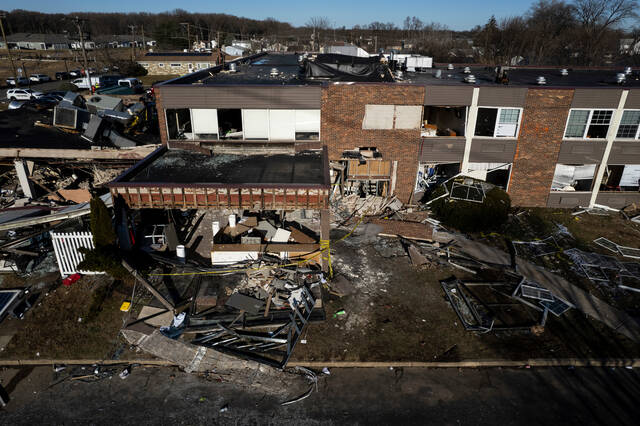Legal scholars, political scientists and others simply curious about how the U.S. Supreme Court has interpreted the Constitution since its founding can now turn to Penn State University for answers.
That’s because the nation’s high court – more precisely, its online database of cases dating to 1791 — has moved to this state’s flagship public university.
The comprehensive resource has information on every case decided by the Supreme Court from its inception to current day, officials said. The database is housed in the political science department within the College of Liberal Arts at University Park.
Michael Nelson, department head and professor of political science who is principal investigator on the database project, told TribLive Wednesday that the database, free and open to the public, is rich with historical information.
“The database gives us the facts about how the court has done its work over time, how many cases they’ve decided, how many of those cases have been decided with dissents or concurring opinions, the sorts of legal issues the court has considered, sorts of policy issues the court has considered,” he said. “It’s just incredibly useful as a set of facts.”
Political polarization nationally and recent contentious court decisions have focused more attention on the nine justices, said Nelson.
“Think about how much the candidates over the last couple of presidential election cycles have talked about the court compared to how much it was talked about in the in the 90s,” he said. “It’s just become incredibly salient as an institution.”
Nelson will collaborate with the college’s McCourtney Institute for Democracy
Included in the database are such landmark cases as Brown v. Board of Education, the 1954 ruling that found separate schools are not equal; Roe v. Wade that secured abortion rights in 1973 and Dobbs v. Jackson that overturned that ruling in 2022 . But there are numerous lesser known decisions involving business, privacy rights, law enforcement and other topics that flowed from societal disputes.
He said the project is particularly important to journalists who research court history for their stories.
The database’s previous longtime overseer was Washington University in St. Louis.
The database was developed in the 1980s at Michigan State University by political scientist Harold Spaeth, whose data extended back as far as the 1950s, officials said
In the late 2000s, the database migrated to Washington University as part of a National Science Foundation-funded project to incorporate all Supreme Court decisions dating back to the nation’s founding, which also made the database more useful to scholars, students and journalists, officials said.
Nelson, then a graduate student there, was part of the project team.
Clarence Lang, Susan Welch Dean of the College of the Liberal Arts, said the database makes for a timely and significant addition to the college’s research mission.
“As one of the foundational pillars of American democracy, the Supreme Court and its decisions demand rigorous scholarship and journalism, particularly in the wake of the highly consequential cases of the past few years,” Lang said.
Nelson said it will benefit instruction. For us, it’ll be good for our graduate training, good for undergraduate students,” he said.








